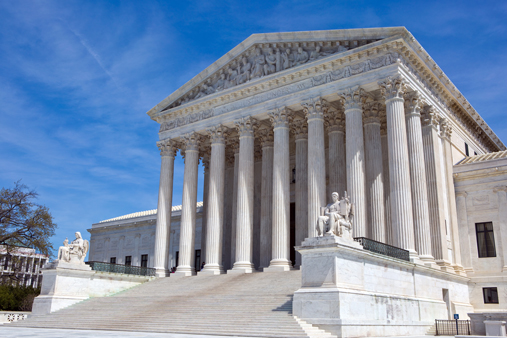As regular readers of these Alerts know, when the Food Safety Modernization Act (FSMA) was passed in January 2011, it required the FDA to adopt several sets of regulations, including one to assure compliance with U.S. food safety standards by foreign suppliers. The statute set an 18-month deadline for the regulations, which the FDA missed. Consumer groups have sued FDA to force it to issue the regulations, and a federal district court in San Francisco recently ordered the FDA to complete the regulations by June 2015. Last Friday, the FDA issued proposed regulations on the foreign supplier verification program (FSVP) and accreditation of third-party auditors. With these proposals, the FDA has now issued proposed rules for four of the seven required subjects.
According to the highlights section of the FDA’s announcement, once the rule takes effect, all food importers must establish and follow an FSVP, unless exempted. A food importer under the proposed regulation is the U.S. owner or consignee of the food at the time of entry, or, if there is no U.S. owner or consignee at the time of entry, the U.S. agent or representative of the foreign owner or consignee. Under the proposed FSVP regulations, an importer would be required to develop, maintain, and follow an FSVP for each food it imports, which, in general, would need to include the following:
- Compliance Status Review: Importers would have to review the compliance status of the food and the foreign supplier (e.g., registration, warning letters) before importing the food and periodically thereafter.
- Hazard Analysis: Importers would have to analyze the hazards associated with each food they import. The hazard analysis would identify the hazards that are reasonably likely to occur for each type of food imported, and evaluate the severity of the illness or injury if such a hazard were to occur.
- Verification Activities: Importers would have to conduct activities that provide adequate assurances that the hazards identified as reasonably likely to occur are adequately controlled. Verification activities could include: onsite auditing of foreign suppliers; periodic or lot-by-lot sampling and testing of food; and periodic review of foreign supplier food safety records; or other appropriate risk-based procedures.
- Corrective Actions: Importers would have to review complaints they receive concerning the foods they import, investigate the cause or causes of adulteration or misbranding in some circumstances, take appropriate corrective actions, and revise their FSVPs when they appear to be inadequate.
- Periodic Reassessment of the FSVP: Importers would have to reassess their FSVPs within three years of establishing the FSVP or within three years of the last assessment. However, importers would have to reassess the effectiveness of their FSVP sooner if they become aware of new information about potential hazards associated with the food.
- Importer Identification: Importers would be required to obtain a Dun and Bradstreet Data Universal Numbering System (DUNS) number for their company and to ensure that, for each food product offered for importation into the United States, their name and DUNS number are provided electronically when filing for entry with Customs and Border Protection.
- Recordkeeping: Importers would have to keep certain records, including those that document compliance status reviews, hazard analyses, foreign supplier verification activities, investigations and corrective actions, and FSVP reassessments.
With respect to the effective date, the proposed regulation states that the date would vary depending on the circumstances. In general, the effective date would be 18 months after the publication date of the final FSVP regulations. Because the FSVP proposed rule is closely tied to other proposed rules on preventive controls and produce safety, however, the effective date for importers in many cases would depend on the effective dates for those rules. In general, the importer would be required to comply with the FSVP regulations six months after the foreign supplier of the food is required to comply with the new FSMA preventive controls regulations.
A copy of the proposed regulation can be found here.
For more information, please contact the Barnes & Thornburg LLP attorney with whom you work or one of the following attorneys:
Food, Drug & Device: Lynn Tyler at (317) 231-7392 or lynn.tyler@btlaw.com; and Hae Park-Suk at (202) 408-6919 or hae.park.suk@btlaw.com.
Agriculture & Food Processing: William Wales at (317) 231-7493 or william.wales@btlaw.com.
Visit us online at www.btlaw.com/food-drug-and-device-law-practices/ and http://www.btlaw.com/agriculture-and-food-processing/.
© 2013 Barnes & Thornburg LLP. All Rights Reserved. This page, and all information on it, is proprietary and the property of Barnes & Thornburg LLP. It may not be reproduced, in any form, without the express written consent of Barnes & Thornburg LLP.
This Barnes & Thornburg LLP publication should not be construed as legal advice or legal opinion on any specific facts or circumstances. The contents are intended for general informational purposes only, and you are urged to consult your own lawyer on any specific legal questions you may have concerning your situation.










/Passle/6488d4630e7e25c9ac9f834a/MediaLibrary/Images/2024-07-18-19-15-33-047-669969d52008239f764a11af.png)


/Passle/6488d4630e7e25c9ac9f834a/SearchServiceImages/2024-07-17-15-17-44-967-6697e0980752df56d2441ada.jpg)
